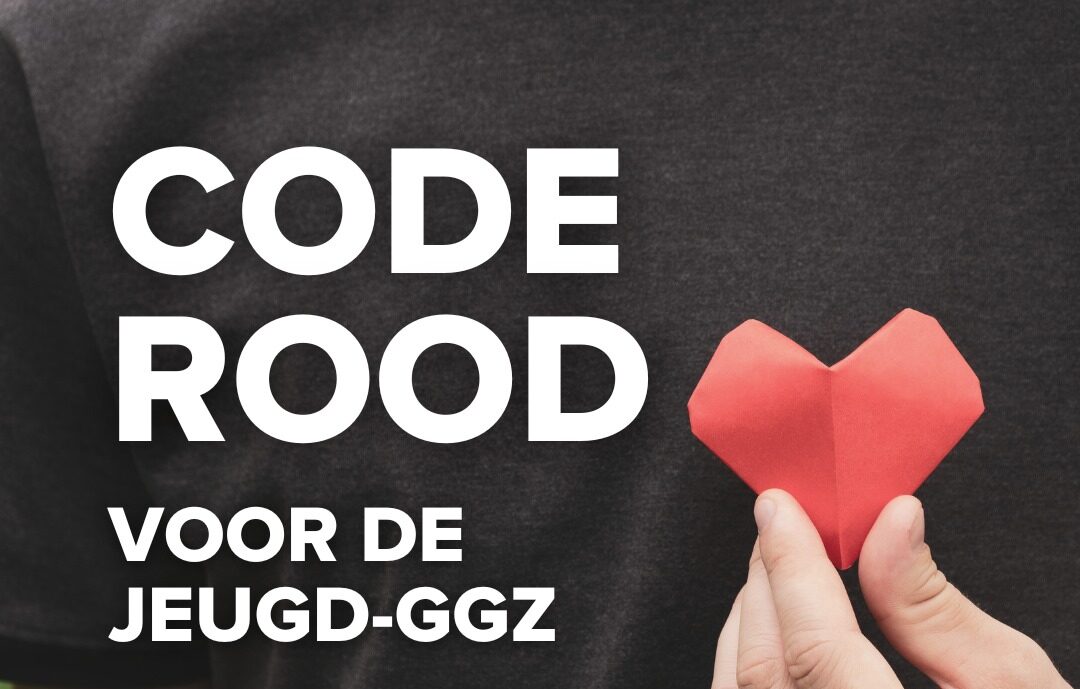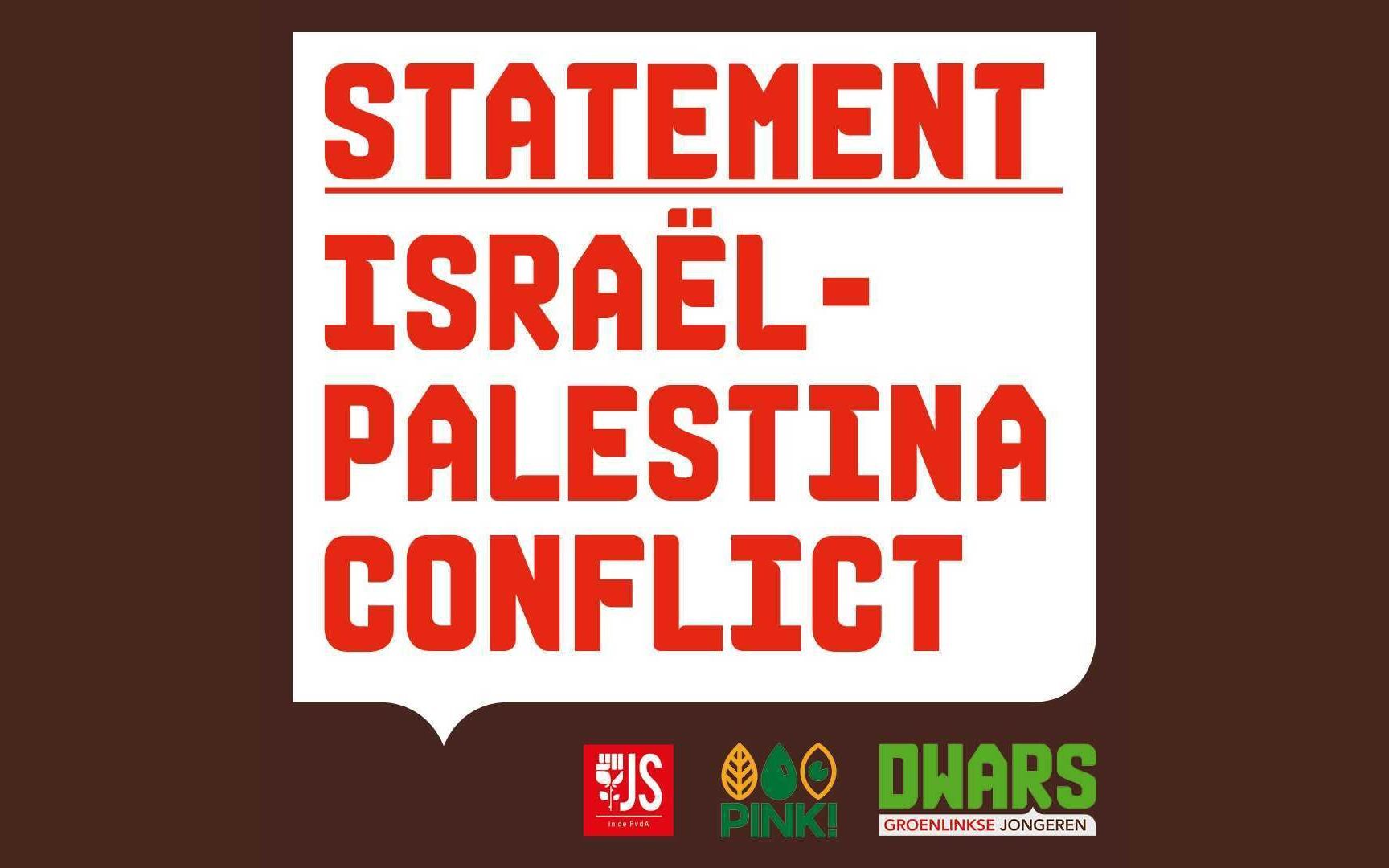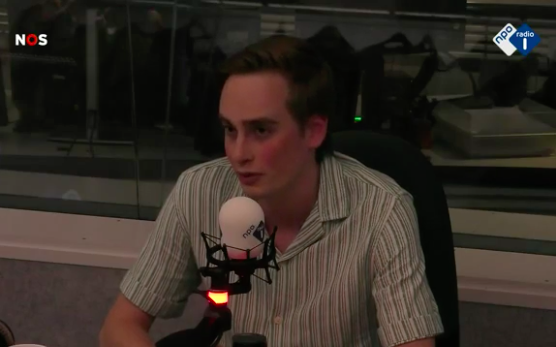A cabinet without the PVV is not a taboo, NSC and VVD think so
15 February 2024On Tuesday, the NSC pulled the plug on initial coalition negotiations with the PVV. The other parties, mainly the VVD, continue to insist on a coalition with a discriminatory and xenophobic party. The time for VVD and NSC to finally show the PVV the door is now. Even if the PVV is the largest, a party that has proven for years that it cares nothing about equal rights or the rule of law has no place at the formation table.
Rick Timmermans - chairman DWARS, GroenLinkse Youth
Thijme Hoffmann - board member National Politics, DWARS, GroenLinkse Youth
This opinion piece is also published on Joop, the opinion site of BNNVARA, on 13 February 2024.
Indeed, forming with Wilders always goes the same way. His goal is not to solve problems, but to use the populist route to set people against each other, divide them and sow hatred. We have seen it before and we see it again: it is impossible to form a government with Wilders, let alone with him.. This is precisely why politics must move away from the idea that the largest party must lead the formation at all costs and then get to deliver the prime minister. Formation should lead to a cabinet that enjoys a majority in the Lower House and that not only respects but also actively protects the democratic constitutional state. Certainly as far as the democratic rule of law is concerned, forming with the PVV is out of the question. But besides that, Wilders obviously does not have an absolute majority. VVD and NSC need not turn to an anti-democratic party to seek a democratic majority.
That the VVD nevertheless prefers to bet on a coalition with Wilders is no surprise. The People's Party for Freedom and Democracy has been employing the same scapegoat politics as Wilders for years. The blame for four cabinets of failed policies is consistently placed on the most vulnerable in society. Asylum seekers who have lost everything and simply have the human right to apply for asylum and be received are not the cause of the housing or crime problems in this country. For that, the VVD really needs to look in the mirror. Moreover, in the campaign, Yesilgöz opened the door wide to the extreme right, thus only further normalising the PVV's hateful, discriminatory ideology. Forming and governing with the PVV is just the next step in that process.
Financial setbacks are now being pointed to as the reason for the halt to formation talks. But anyone looking at the reluctance of the VVD and NSC to enter a majority government and the quarrels on social media between the party leaders knows that those setbacks were more of a drop in the bucket. Surely the filling up of that bucket starts with the talks on the rule of law. This is absurd, of course, as if fundamental democratic rights and the constitution are something to be negotiated, rather than a final protection against extremism and discrimination. It is impossible to explain to a party leader like Pieter Omtzigt, who holds the democratic rule of law and the constitution in such high regard, that the rift at those talks got no further than 'agree to disagree'.
These times call for looking beyond political traditions. A decisive cabinet is needed to tackle the many crises, from the climate crisis to the housing shortage and from institutional racism to livelihood security. With the PVV in the cabinet, today's problems are not being addressed, but further neglected, delayed and worsened. It is time the VVD and NSC had the guts to look beyond what political traditions dictate, such as forming with the largest party as the tug of war.
In countries like Spain and Poland, left-wing, progressive, and centre- and middle-right parties are already successfully working together to keep the biggest far-right parties out of government. There, too, the far right grew larger, as happens in many places in Europe. There, they did show courage and did not succumb to the rise of far-right, and sometimes fascist, parties.
The VVD and NSC should take an example from this and ask themselves what is really more problematic for Dutch politics: levying extra taxes on the extremely rich and pursuing fair climate policies, or risking the democratic values and norms that have been fought for for years?
Rick Timmermans (23) is president of DWARS, the independent youth organisation of GroenLinks. Previously, he was chairman of DWARS Brabant-Zeeland.
Thijme Hoffmann (23) is a board member of National Politics at DWARS, the independent youth organisation of GroenLinks. He is also a municipal councillor for GroenLinks Overbetuwe.


